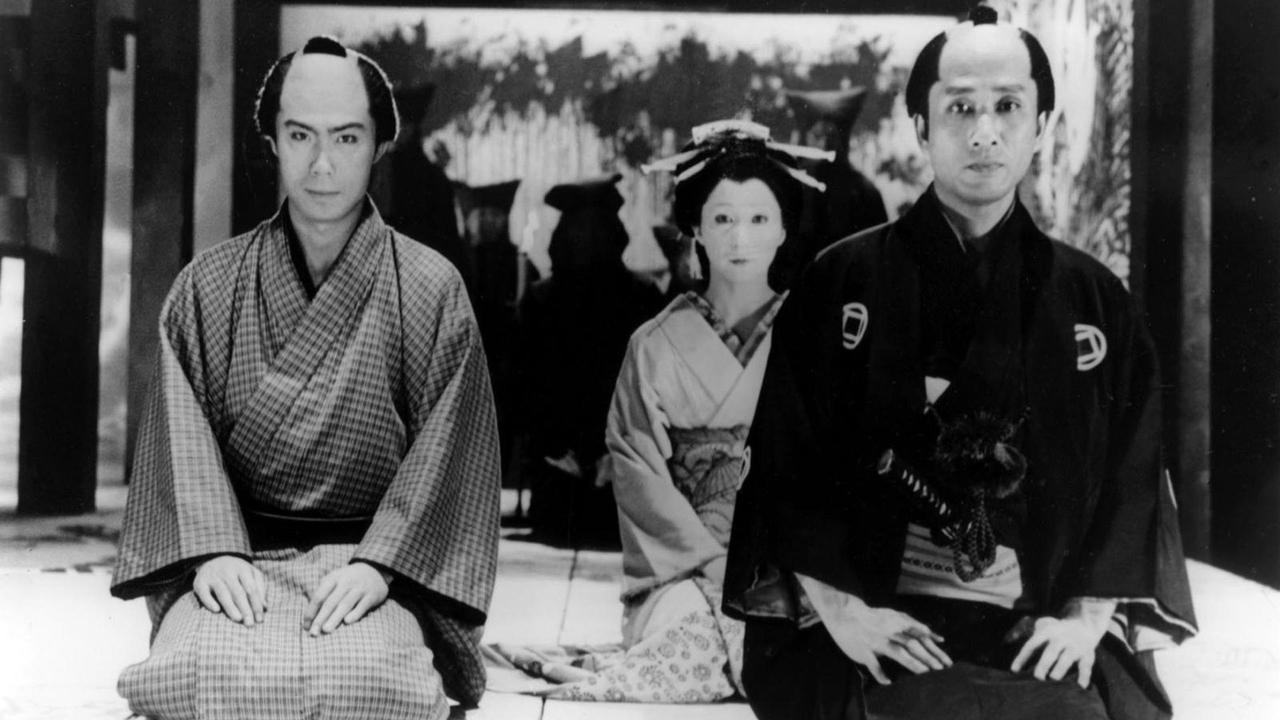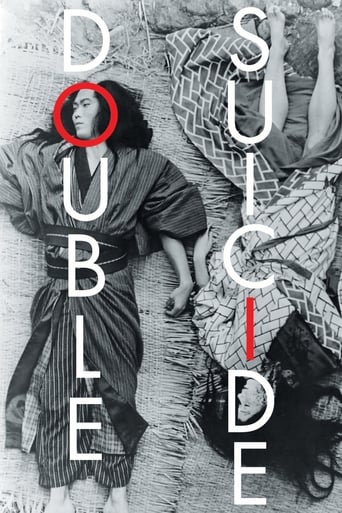BootDigest
Such a frustrating disappointment
PlatinumRead
Just so...so bad
Hadrina
The movie's neither hopeful in contrived ways, nor hopeless in different contrived ways. Somehow it manages to be wonderful
Philippa
All of these films share one commonality, that being a kind of emotional center that humanizes a cast of monsters.
talisencrw
Even though I'm Christian and have always been brought up considering the act of suicide a 'taboo' subject, I have always held great respect for both the Japanese way of doing so to save face, and the thoroughly romantic notion, say, from the likes of 'Romeo and Juliet' (with Shakespeare's writings being probably the cornerstone of Western thought)--so from two completely different cultural perspectives--that a life without the one you love is not worth living.I had previously only seen two of Masahiro Shinoda's other works for The Criterion Collection--the earlier works 'Pale Flower' and 'Samurai Spy', and I don't know if it was on purpose by the company in selecting the titles, but I marveled at the breathtaking variety of his scripts, all from such a short timespan (1964-69). Being a patron of the theatre (in many different modes) and as anthropologically cosmopolitan in my approach to life as is conceivable, I salute Shinoda with a profound respect, and look forward to investigating as many of his other works as possible.
christopher-underwood
Fine film. I usually prefer non historic Japanese films but this is really very good and the tendency to being ponderous is not here at all. Watched this after seeing the wonderful Pale Flower, directed by Masahiro Shinoda a few years before this and was not disappointed. The film opens with a discussion as to how the suicide sequence is to be shot and we see traditional Kabuki puppets, all during the opening credits. Historic setting and very traditional goings on, not good news, I thought but how wrong. Once the film begins we are in the territory of live action only, although there is the sensational element of puppetry in the form of black cloaked 'puppeteers' forever hovering around, attending to the main protagonists and changing scenery about. There is not a frame that is not perfect and despite the plot being remarkably slender, this is riveting and all involving.
chaos-rampant
Based on a 18th century bunraku play (Japanese form of puppet theater) by Chikamatsu, Double Suicide revolves around the star-crossed love of paper merchant Jihei and courtesan Koharu. The problem in Jihei's case however is twofold. First he's a married man and second he can't afford to pay the brothel Koharu works in and redeem her. In the face of their unrequisite and impossible love, Jihei and Koharu decide to commit suicide together - the inevitably tragic conclusion the title refers to.Double Suicide is a three-act filmed play but it's director Masahiro Shinoda's command of the craft that transforms it into something more. Since the original is a bunraku puppet play, he opens the film with modern bunraku actors preparing for it and after the credits sequence switches the puppets for real actors.The puppet masters however remain present for the entire movie, dressed in black suits, looking all the same, mute and mostly motionless, like artificial props and part of the set decoration they're charged with changing. Indeed they remove and change sets, actively take part in the action and interact with the actors and even freeze narrative time for our convenience but the best part (and a testament to Shinoda's talent) is that they never call attention to themselves as a gimmick.They blend seamlessly with the combination of traditional and abstract painted sets and there are times you forget they're even present in the scene until they move. What they do mostly however is observe. Shinoda's direction is as usual perfect - enhanced by Criterion's pristine transfer, Double Suicide is a feast for the eyes shot in stark black and white, where the black is black and the white is white.Related to Shinoda's excellent directorial skills, a common conception about him is that he's a director easy to admire but hard to love. I think Double Suicide effectively combines the best of both worlds - the technical prowess of a master cinematician with a touching and tragic love story, with universal roots but a very traditionally Japanese approach - the conflict between duty (giri) and passion (ninjo).
dgray-1
A mesmerizing film which asks deep questions about the role interplay] of fate and free will in human actions. The occasional appearance of hooded background figures and their actions, sometimes just to change the scenery, is done in such a casual manner that it underlines the view that we are not always in full command of what is perceived to be our reality. The ending is truly stunning. A one of a kind experience!

